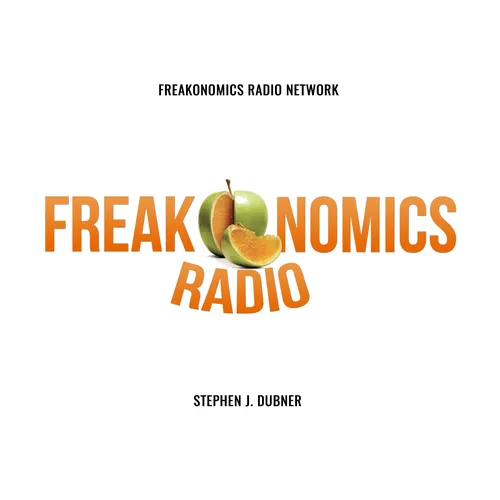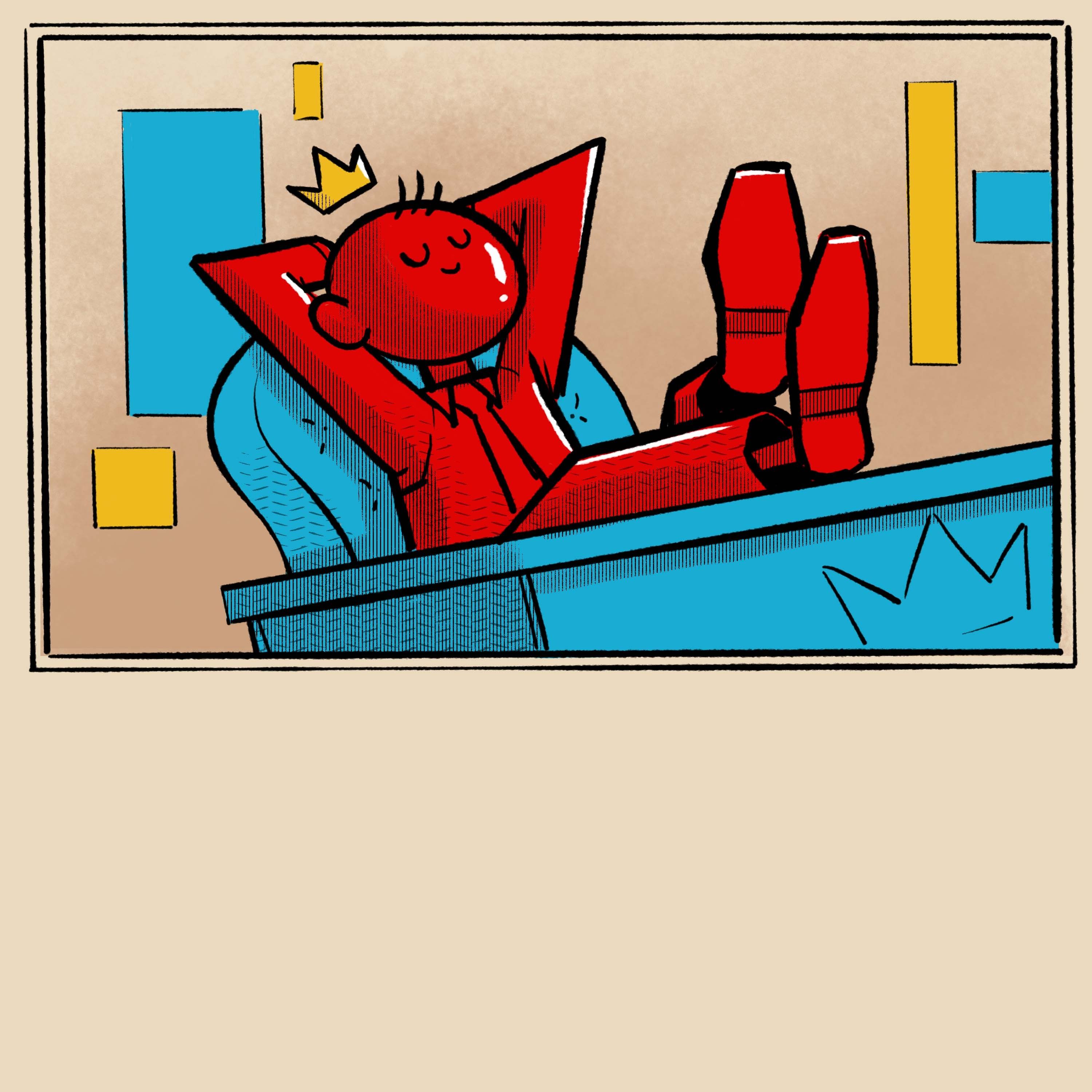
Freakonomics Radio
Freakonomics co-author Stephen J. Dubner uncovers the hidden side of everything. Why is it safer to fly in an airplane than drive a car? How do we decide whom to marry? Why is the media so full of bad news? Also: things you never knew you wanted to know about wolves, bananas, pollution, search engines, and the quirks of human behavior.
To get every show in the Freakonomics Radio Network without ads and a monthly bonus episode of Freakonomics Radio, start a free trial for SiriusXM Podcasts+ on Apple Podcasts or by visiting siriusxm.com/podcastsplus.
- Update frequency
- every 5 days
- Average duration
- 41 minutes
- Episodes
- 857
- Years Active
- 2010 - 2025

Everything You Always Wanted to Know About Money (But Were Afraid to Ask) (Rebroadcast)
The bad news: roughly 70 percent of Americans are financially illiterate. The good news: all the important stuff can fit on one index card. Here's how to become your own financial superhero.

327. Extra: Carol Bartz Full Interview
Stephen Dubner's conversation with the former C.E.O. of Yahoo, recorded for the Freakonomics Radio series “The Secret Life of a C.E.O.”

The Stupidest Thing You Can Do With Your Money (Rebroadcast)
It's hard enough to save for a house, tuition, or retirement. So why are we willing to pay big fees for subpar investment returns? Enter the low-cost index fund. The revolution will not be monetized.

326. Extra: Jack Welch Full Interview
Stephen Dubner's conversation with the former longtime C.E.O. of General Electric, recorded for the Freakonomics Radio series “The Secret Life of a C.E.O.”

325. How to Train Your Dragon Child
Every 12 years, there's a spike in births among certain communities across the globe, including the U.S. Why? Because the Year of the Dragon, according to Chinese folk belief, confers power, fortune,…

324. Extra: Satya Nadella Full Interview
Stephen Dubner's conversation with the C.E.O. of Microsoft, recorded for the Freakonomics Radio series “The Secret Life of a C.E.O.”

323. Here’s Why All Your Projects Are Always Late — and What to Do About It
Whether it's a giant infrastructure plan or a humble kitchen renovation, it'll inevitably take way too long and cost way too much. That's because you suffer from “the planning fallacy.” (You also hav…

322. Extra: David Rubenstein Full Interview
Stephen Dubner's conversation with the co-founder and longtime co-C.E.O. of the Carlyle Group, recorded for the Freakonomics Radio series “The Secret Life of a C.E.O.”

Does “Early Education” Come Way Too Late? (Rebroadcast)
In our collective zeal to reform schools and close the achievement gap, we may have lost sight of where most learning really happens — at home.

321. Extra: Richard Branson Full Interview
Stephen Dubner's conversation with the Virgin Group founder, recorded for the Freakonomics Radio series “The Secret Life of a C.E.O.”

320. Letting Go
If you're a C.E.O., there are a lot of ways to leave your job, from abrupt firing to carefully planned succession (which may still go spectacularly wrong). In this final episode of our "Secret Life o…

319. After the Glass Ceiling, a Glass Cliff
Only 5 percent of Fortune 500 companies are run by women. Why? Research shows that female executives are more likely to be put in charge of firms that are already in crisis. Are they being set up to …

318. It’s Your Problem Now
No, it's not your fault the economy crashed. Or that consumer preferences changed. Or that new technologies have blown apart your business model. But if you're the C.E.O., it is your problem. So what…

317. What Can Uber Teach Us About the Gender Pay Gap?
The gig economy offers the ultimate flexibility to set your own hours. That's why economists thought it would help eliminate the gender pay gap. A new study, using data from over a million Uber drive…

An Egghead’s Guide to the Super Bowl (Rebroadcast)
We assembled a panel of smart dudes -- a two-time Super Bowl champ; a couple of N.F.L. linemen, including one who's getting a math Ph.D. at MIT; and our resident economist -- to tell you what to watc…

316. “I Wasn’t Stupid Enough to Say This Could Be Done Overnight”
Indra Nooyi became C.E.O. of PepsiCo just in time for a global financial meltdown. She also had a portfolio full of junk food just as the world decided that junk food is borderline toxic. Here's the …

315. How to Become a C.E.O.
Mark Zuckerberg's dentist dad was an early adopter of digital x-rays. Jack Welch blew the roof off a factory. Carol Bartz was a Wisconsin farm girl who got into computers. No two C.E.O.'s have the sa…

What Does a C.E.O. Actually Do?
They're paid a fortune — but for what, exactly? What makes a good C.E.O. — and how can you even tell? Is "leadership science" a real thing — or just airport-bookstore mumbo jumbo? We put these questi…

313. How to Be a Modern Democrat — and Win
Gina Raimondo, the governor of tiny Rhode Island, has taken on unions, boosted big business, and made friends with Republicans. She is also one of just 15 Democratic governors in the country. Would t…

Why Is My Life So Hard? (Rebroadcast)
Most of us feel we face more headwinds and obstacles than everyone else — which breeds resentment. We also undervalue the tailwinds that help us — which leaves us ungrateful and unhappy. How can we a…